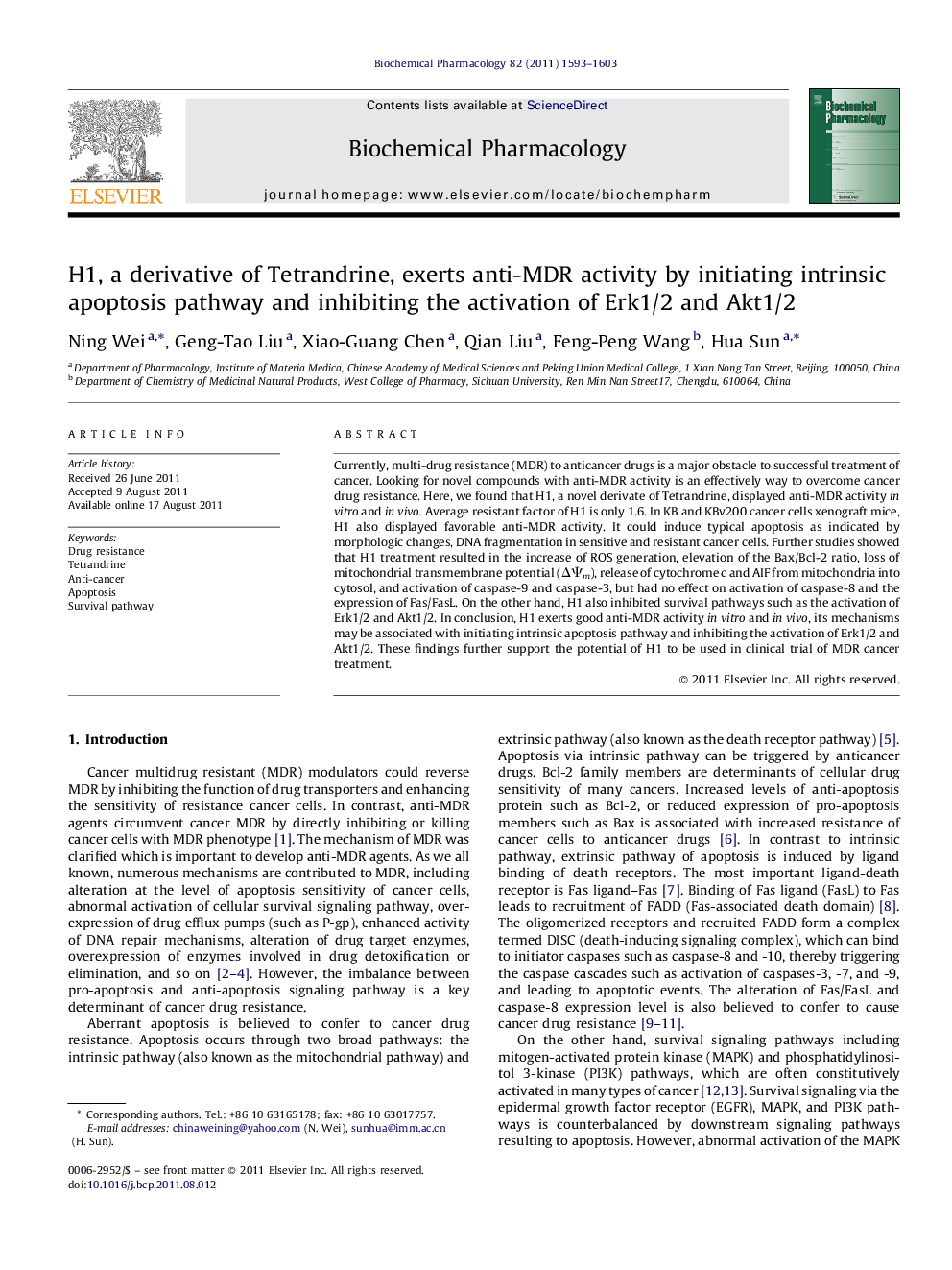| Article ID | Journal | Published Year | Pages | File Type |
|---|---|---|---|---|
| 2513026 | Biochemical Pharmacology | 2011 | 11 Pages |
Currently, multi-drug resistance (MDR) to anticancer drugs is a major obstacle to successful treatment of cancer. Looking for novel compounds with anti-MDR activity is an effectively way to overcome cancer drug resistance. Here, we found that H1, a novel derivate of Tetrandrine, displayed anti-MDR activity in vitro and in vivo. Average resistant factor of H1 is only 1.6. In KB and KBv200 cancer cells xenograft mice, H1 also displayed favorable anti-MDR activity. It could induce typical apoptosis as indicated by morphologic changes, DNA fragmentation in sensitive and resistant cancer cells. Further studies showed that H1 treatment resulted in the increase of ROS generation, elevation of the Bax/Bcl-2 ratio, loss of mitochondrial transmembrane potential (ΔΨm), release of cytochrome c and AIF from mitochondria into cytosol, and activation of caspase-9 and caspase-3, but had no effect on activation of caspase-8 and the expression of Fas/FasL. On the other hand, H1 also inhibited survival pathways such as the activation of Erk1/2 and Akt1/2. In conclusion, H1 exerts good anti-MDR activity in vitro and in vivo, its mechanisms may be associated with initiating intrinsic apoptosis pathway and inhibiting the activation of Erk1/2 and Akt1/2. These findings further support the potential of H1 to be used in clinical trial of MDR cancer treatment.
Graphical abstractFigure optionsDownload full-size imageDownload as PowerPoint slide
